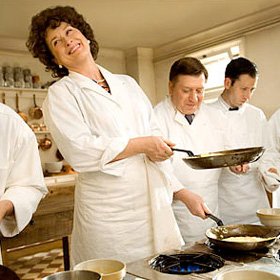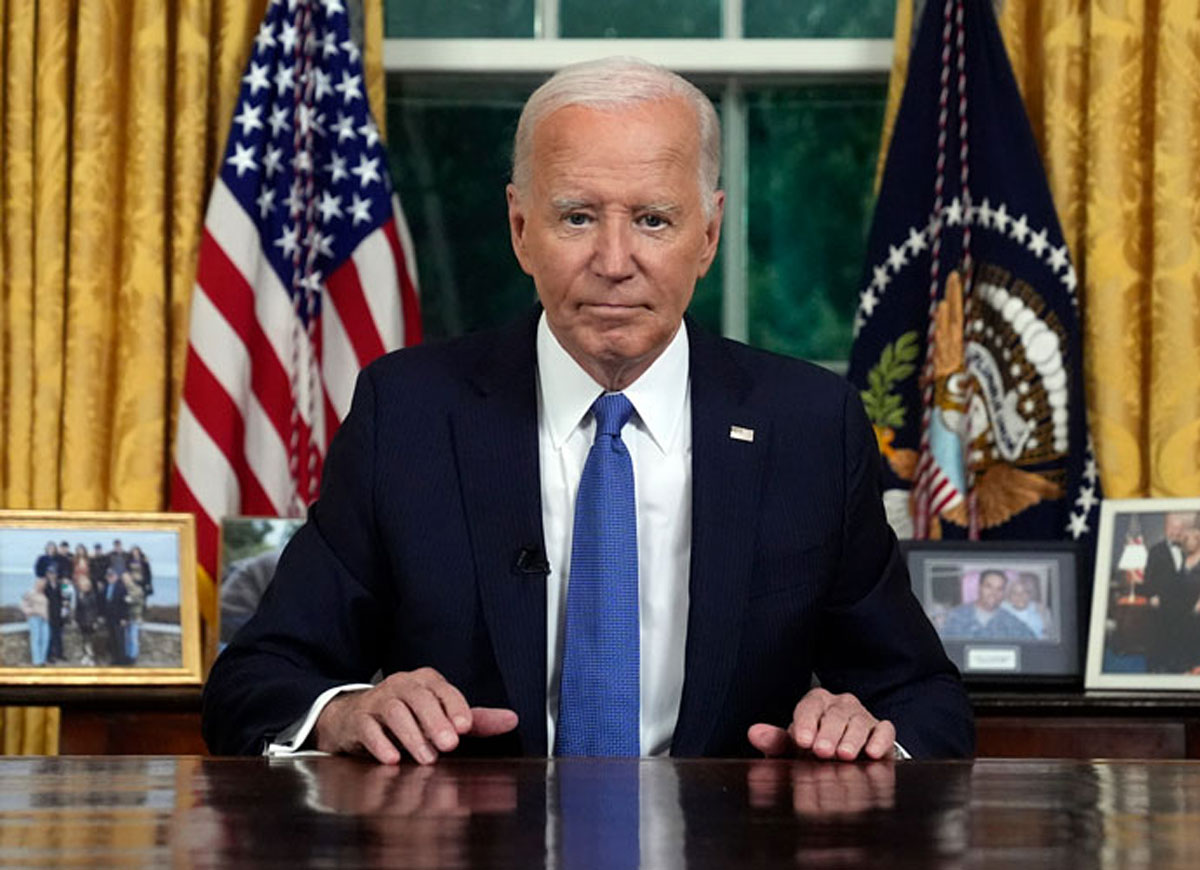Julie & Julia

4/5
A prestigious triangle of heavyweight female talent combine to realize this impossible sounding screen amalgamation of two separate books, penned by two different women, spanning two continents, and separated by more than forty odd years. In addition to her directing duties, three-time Oscar nominated screenwriter Nora Ephron slices through the rich, flavorful prose with a carving knife, reducing the material to its very essence as the story of one woman greatly inspired who went on to inspire others. With a dash of Julie Powell’s titular 2004 book detailing her kitchen-based odyssey through Julia Child’s seminal cookbook and a healthy seasoning of Child’s own posthumously completed 2006 autobiography My Life in France, the result is a multi-generational comedy of spirit and determination that’s both hearty and heartfelt.
Superbly structured across the two contrasting eras, Ephron unfolds the modern day chapters with Amy Adams as Julie Powell, the mousey, put upon cubicle dweller manning a service helpline for Lower Manhattan Development Corporation in the wake of the 9/11 attacks. Up to her eyes in human misery, patronized by her so-called girlfriends, and wholly adrift in her life, Powell’s only respite is cooking in her cramped Long Island City kitchen. Meanwhile, in early 1950’s Paris we find Julia Child (Meryl Streep) as the effervescent, somewhat bored wife of her Foreign Service officer husband Paul (Stanley Tucci). There her great love of food fuels the decision to enroll in culinary school and learn the secrets of French cuisine that she would later impart to an entire generation of American women through her landmark publication Mastering The Art of French Cooking.
Despite never sharing the screen together for even a second, it’s this sense of kindred spirits that Ephron cooks up between Julie and Julia that is the bedrock of the film. A trailblazing woman for her time, Julia Childs posited to teach cooking to homemakers at a time when it was unfathomable for a well-to-do American woman not to have a cook. Presenting her as a vivacious woman with an unassailable passion for food, for sex, for life, so much of Streep’s reliably classy performance has to do with her voice. That unmistakable sliding arpeggio warble with its golly-gosh eccentricity, made famous by Child’s longstanding television career, is emblematic of a woman whose acute self-awareness acted as a suit of armor against the sneering of those who believed she had no business in a kitchen with proper French chefs (all of whom were men of course).
These days things are much different and now it’s all about self-promotion. What are you doing? Where are you going? Who’s in your network? What’s on your bagel this morning? Enquiring minds want to know. Stuck deep in a rut and gutted by a magazine article written by a friend that singles her out as a failed woman on the cusp of thirty, Julie Powell is desperately seeking a little self-determination. Calmed each night by the absolute certainty that “if you add egg yolks to chocolate, milk, and sugar, it will thicken” she elects to whisk her way through Julia’s 524 recipes in 365 days and blog about it simply so she can say she’s finally finished something in her life.
But while the movie faints and fawns over some scrumptious looking delights, paying close attention to the terror of Lobster Thermidor and the labor of love that is Beef Bourgeon, this film really isn’t abut cooking at all. At heart Julie & Julia is a film about relationships, about marriage, and the lengths you will go to support your partner. Stanley Tucci turns in a wonderfully understated performance as Paul Child, whose eagerness to retain foreign postings so that Julia might better finish her cookbook invite suspicion of Pinko sympathies, yet he does not falter. By the same token Julie’s husband Eric Powell essentially agrees to place their entire marriage on hiatus as his wife buries herself in the task of realizing more than 500 recipes in a single year while holding down her energy-sapping day job at the same time.
Sporting what might just be the single most unflattering haircut of all time, it’s another brilliantly self-deprecating performance from Amy Adams, whose star is well and truly on the rise. Lending a real vulnerability to the role with increasing earnestness, Adams effectively ropes you in to what is essentially an internal struggle against frustration and faltering will. Streep as Julia Child is excellent as ever in a role that it is hard in retrospect to imagine any other actress playing.
But the biggest plaudits have to go to the director. Ephron again cements her status as one of the great overlooked women in Hollywood today, delivering a remarkably cinematic picture considering its dialogue driven nature and predominantly interior settings. Brilliantly straddling the two different time periods, it’s a testament to her ability that neither of the central performances eclipses the other. Measuring the passion of the pathos to perfection, Ephron gently boils away any hint of narrative clutter or confusion, allowing a singular search for purpose to bubble to the thematic surface. As Julia tirelessly hunts for a US publisher to put out her finally finished cookbook, she muses to Paul: “Have the last eight years of our life just been something to do? So that I wouldn’t have nothing to do?” A generation of women would disagree.
2009
Starring: Meryl Streep, Amy Adams, Stanley Tucci, Chris Messina, Mary Lynn Rajskub
Director: Nora Ephron
Runtime: 123 Minutes
Distributor: Columbia Pictures
Rating: PG-13
RELATED ARTICLES
Get the most-revealing celebrity conversations with the uInterview podcast!







Leave a comment